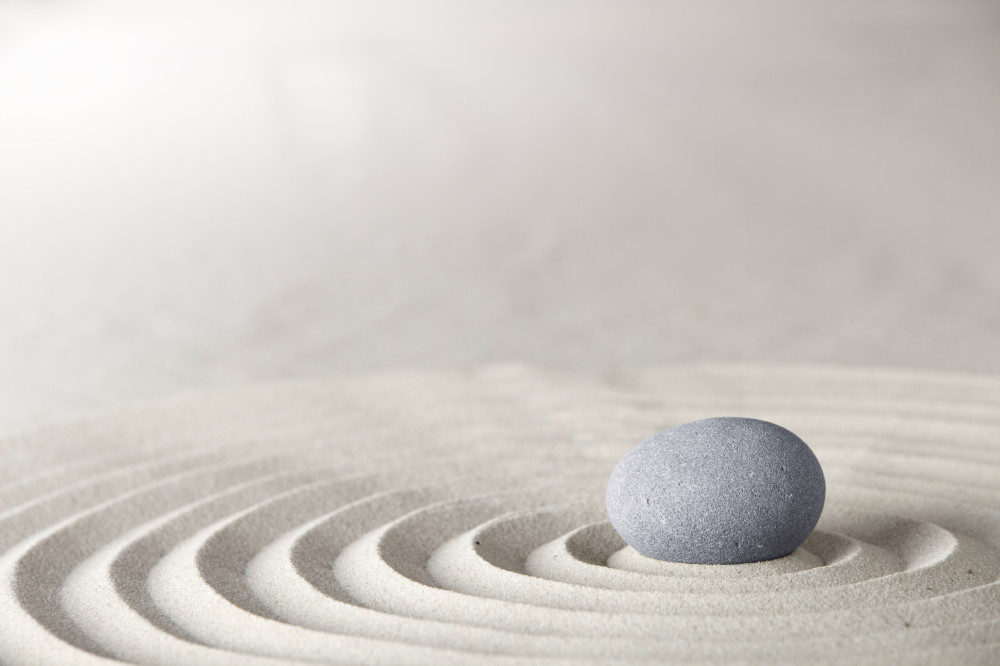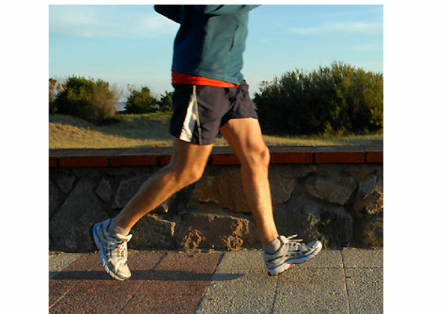 Summer is the season of long days, abundant energy and lots of daylight. It is considered the ‘fire’ element and is the most active (yang) time of the year. It’s the best time for activity and movement. Your body has a higher metabolism in the summer, circulation is at its best and now is the time to get outside and move your muscles! The heart, mind, and spirit are ruled by the fire element. To live in accordance with the seasons, now is the time to reach outwards, spend time in nature, nourish your mind and move your body. In Chinese medicine the heart is associated with mental activity and a healthy heart improves memory, ability to learn and emotional well being. When the fire element is in balance, the heart is strong and healthy, the mind is clear and joy comes easily. When the fire element is imbalanced, there is apathy, anxiety, fuzzy thinking and restless sleep with vivid dreams. In Chinese Medicine the best ways to nourish the body during summer months: Wake earlier in the morning Rest in the midday (when sun is highest) Don’t go to sleep with a full stomach Drink plenty of fluids Eat cooling foods Spend more time outdoors and in nature Cooling foods help the body cool down and adjust to high temperatures: Watermelon Apricot Cantaloupe Peach Bamboo Broccoli Cucumber White mushroom Snow peas Spinach Watercress Seaweed Cilantro Mint Dill Until next time, be well and think...
Summer is the season of long days, abundant energy and lots of daylight. It is considered the ‘fire’ element and is the most active (yang) time of the year. It’s the best time for activity and movement. Your body has a higher metabolism in the summer, circulation is at its best and now is the time to get outside and move your muscles! The heart, mind, and spirit are ruled by the fire element. To live in accordance with the seasons, now is the time to reach outwards, spend time in nature, nourish your mind and move your body. In Chinese medicine the heart is associated with mental activity and a healthy heart improves memory, ability to learn and emotional well being. When the fire element is in balance, the heart is strong and healthy, the mind is clear and joy comes easily. When the fire element is imbalanced, there is apathy, anxiety, fuzzy thinking and restless sleep with vivid dreams. In Chinese Medicine the best ways to nourish the body during summer months: Wake earlier in the morning Rest in the midday (when sun is highest) Don’t go to sleep with a full stomach Drink plenty of fluids Eat cooling foods Spend more time outdoors and in nature Cooling foods help the body cool down and adjust to high temperatures: Watermelon Apricot Cantaloupe Peach Bamboo Broccoli Cucumber White mushroom Snow peas Spinach Watercress Seaweed Cilantro Mint Dill Until next time, be well and think...
 It’s not just for pain. When most people think of acupuncture they think of pain relief…but did you know it’s used to treat a wide array of other conditions? It can also help with issues such as digestive problems, tinnitus, premenstrual symptoms and anxiety. It’s very relaxing. Once the points are in your parasympathetic nervous system kicks into gear which relaxes muscles, calms the mind and promotes a restful, tranquil state. Regular treatment helps you to feel more relaxed and calm and to better handle life’s stressors. Registered Acupuncturists go to school for a long time. BC requires licensing of all Registered Acupuncturists. It is regulated under the Health Professions Act and all Registered Acupuncturists must be licensed with the College of Traditional Chinese Medicine Practitioners and Acupuncturists of BC (CTCMA). In BC a Registered Acupuncturist undergoes a minimum of three years of full-time accredited acupuncture education in addition to two years of prerequisite university sciences. After completing five years of education they must pass a National Board Exam in order to be licensed to practice in BC. The continuing education requirements for Registered Acupuncturists are amongst the highest of all the regulated health professions in BC. Until next time…Think Vitality!...
It’s not just for pain. When most people think of acupuncture they think of pain relief…but did you know it’s used to treat a wide array of other conditions? It can also help with issues such as digestive problems, tinnitus, premenstrual symptoms and anxiety. It’s very relaxing. Once the points are in your parasympathetic nervous system kicks into gear which relaxes muscles, calms the mind and promotes a restful, tranquil state. Regular treatment helps you to feel more relaxed and calm and to better handle life’s stressors. Registered Acupuncturists go to school for a long time. BC requires licensing of all Registered Acupuncturists. It is regulated under the Health Professions Act and all Registered Acupuncturists must be licensed with the College of Traditional Chinese Medicine Practitioners and Acupuncturists of BC (CTCMA). In BC a Registered Acupuncturist undergoes a minimum of three years of full-time accredited acupuncture education in addition to two years of prerequisite university sciences. After completing five years of education they must pass a National Board Exam in order to be licensed to practice in BC. The continuing education requirements for Registered Acupuncturists are amongst the highest of all the regulated health professions in BC. Until next time…Think Vitality!...
 Menopause-related hot flashes can make life difficult. It’s hard to know when they will hit but when they do it can be uncomfortable and upsetting. Now that summer is creeping up and the weather is getting warmer, hot flashes can really become a bother. Try to keep track of when you get them so you can identify the trigger, for example where you were, what you were doing and what you ate. Stress is one of the top triggers for hot flashes. When you feel one coming on, try to stop what you’re doing, slow down and take a break. Prepare in advance and give yourself more time to get places so you don’t have the added stress of rushing. Other common triggers include alcohol, caffeine, spicy and/or sugary foods, large servings of meat, smoking and over-eating. One of the best things you can do is to find ways to reduce your stress level. Acupuncture is another way to reduce menopause-related hot flashes. Acupuncture can help to balance your hormones and reduce the frequency and severity of hot flashes and other menopause-related symptoms. Many people also notice an improvement in sleep and mood after only a few treatments. Drinking more water and eating lots of leafy greens can also help your symptoms. In Traditional Chinese Medicine foods are used as medicine and classified based on the effect they have on the body. There are certain foods which are known to have a cooling effect. Below is a list of some cooling foods you may want to eat more of during the summer months! cucumber cantaloupe watermelon celery spinach broccoli...
Menopause-related hot flashes can make life difficult. It’s hard to know when they will hit but when they do it can be uncomfortable and upsetting. Now that summer is creeping up and the weather is getting warmer, hot flashes can really become a bother. Try to keep track of when you get them so you can identify the trigger, for example where you were, what you were doing and what you ate. Stress is one of the top triggers for hot flashes. When you feel one coming on, try to stop what you’re doing, slow down and take a break. Prepare in advance and give yourself more time to get places so you don’t have the added stress of rushing. Other common triggers include alcohol, caffeine, spicy and/or sugary foods, large servings of meat, smoking and over-eating. One of the best things you can do is to find ways to reduce your stress level. Acupuncture is another way to reduce menopause-related hot flashes. Acupuncture can help to balance your hormones and reduce the frequency and severity of hot flashes and other menopause-related symptoms. Many people also notice an improvement in sleep and mood after only a few treatments. Drinking more water and eating lots of leafy greens can also help your symptoms. In Traditional Chinese Medicine foods are used as medicine and classified based on the effect they have on the body. There are certain foods which are known to have a cooling effect. Below is a list of some cooling foods you may want to eat more of during the summer months! cucumber cantaloupe watermelon celery spinach broccoli...
 1. You Have Pain Whether the pain is from a recent injury, arthritis, fibromyalgia, or general stiffness, acupuncture can help. Acupuncture can reduce pain and stimulate the body’s own healing response. It does this by interrupting the pain signals along nerve fibres, increasing circulation to the area, releasing endorphins and stimulating the central nervous system to regulate neurotransmitters and hormones. The release of these chemicals reduce pain, stimulate the immune system and regulate various functions and systems in the body. From a Traditional Chinese Medicine perspective, acupuncture promotes the smooth flow of Qi (energy) and blood throughout the body. 2. You’re Always Tired If you feel tired even after a long uninterrupted sleep, then you may want to explore the benefits of acupuncture. Traditional Chinese Medicine (TCM) takes into account all systems and organs in the body and can determine where there is an imbalance. Even if all your blood tests have come back normal and your doctor can’t find anything wrong, TCM can identify the ‘root’ cause or imbalance that is causing your fatigue. Treatment is aimed at identifying and strengthening your constitutional weakness, immune system, and digestion to bring your energy back. 3. You’re Stressed One of the things acupuncture does best is calm the mind and produce a relaxation response in the body. Acupuncture stimulates a release of endorphins (the feel-good chemicals) which help calm the body and mind. Many people feel so relaxed they even fall asleep during treatment and leave with a sense of deep calm. Allowing your body the time to relax at such a deep level, gives the brain a rest and...
1. You Have Pain Whether the pain is from a recent injury, arthritis, fibromyalgia, or general stiffness, acupuncture can help. Acupuncture can reduce pain and stimulate the body’s own healing response. It does this by interrupting the pain signals along nerve fibres, increasing circulation to the area, releasing endorphins and stimulating the central nervous system to regulate neurotransmitters and hormones. The release of these chemicals reduce pain, stimulate the immune system and regulate various functions and systems in the body. From a Traditional Chinese Medicine perspective, acupuncture promotes the smooth flow of Qi (energy) and blood throughout the body. 2. You’re Always Tired If you feel tired even after a long uninterrupted sleep, then you may want to explore the benefits of acupuncture. Traditional Chinese Medicine (TCM) takes into account all systems and organs in the body and can determine where there is an imbalance. Even if all your blood tests have come back normal and your doctor can’t find anything wrong, TCM can identify the ‘root’ cause or imbalance that is causing your fatigue. Treatment is aimed at identifying and strengthening your constitutional weakness, immune system, and digestion to bring your energy back. 3. You’re Stressed One of the things acupuncture does best is calm the mind and produce a relaxation response in the body. Acupuncture stimulates a release of endorphins (the feel-good chemicals) which help calm the body and mind. Many people feel so relaxed they even fall asleep during treatment and leave with a sense of deep calm. Allowing your body the time to relax at such a deep level, gives the brain a rest and...
 We all know that exercise is good for you, but did you know that it’s also good for your digestive and gastrointestinal health? Yes, that’s right…exercise can be like a good dose of probiotic. New research has shown that exercise can actually increase the diversity and abundance of healthy bacteria in the stomach and intestines. Gastrointestinal bacteria are involved in a multitude of processes that take place in our body. They contribute to proper digestion, nutrient absorption, ulcer prevention, and a healthy immune system. Lower levels of bacterial diversity in the gut is associated with reduced health outcomes. Most of us are aware that diet can influence gastrointestinal microbiota, but it’s pretty amazing that exercise can also contribute to a healthy digestive tract. Another reason to get out and active this...
We all know that exercise is good for you, but did you know that it’s also good for your digestive and gastrointestinal health? Yes, that’s right…exercise can be like a good dose of probiotic. New research has shown that exercise can actually increase the diversity and abundance of healthy bacteria in the stomach and intestines. Gastrointestinal bacteria are involved in a multitude of processes that take place in our body. They contribute to proper digestion, nutrient absorption, ulcer prevention, and a healthy immune system. Lower levels of bacterial diversity in the gut is associated with reduced health outcomes. Most of us are aware that diet can influence gastrointestinal microbiota, but it’s pretty amazing that exercise can also contribute to a healthy digestive tract. Another reason to get out and active this...






